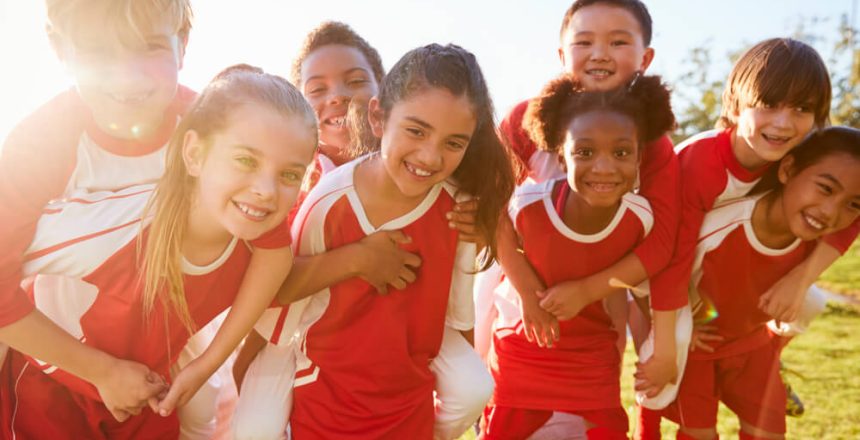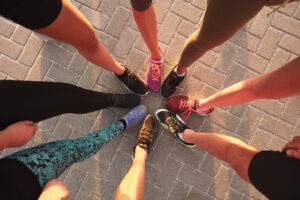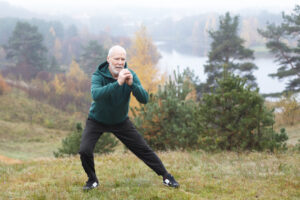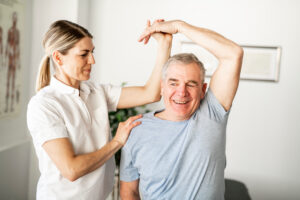The Symptoms of Heat-Illness for Young Athletes
With the hottest summer months approaching, it is important for parents of young people participating in sports and coaches to educate themselves about heat-related illnesses
High temperatures mixed with high-intensity training can lead to everything from heat cramps to potentially fatal heat stroke.
One of the things coaches, athletic directors, and parents fail to realize when it comes to young athletes is that it can take 10-14 days to acclimate to hot weather in the summer months. Younger people may need even more time, as they are even less tolerant than adults in handling heat.
With 70% of heat-related illness occurring in the month of August, it’s critical you recognize the symptoms.
Heat-related illness are caused by dehydration, and its symptoms include:
- Thirst
- Irritability
- Headaches
- Body weakness
- Decreased Performance
- Dizziness
- Muscle Cramps
- Chills
- Nausea and Vomiting
Identifying these symptoms empowers parents and coaches to take steps to ensure the safety of young athletes during the hot summer months.
How to Prevent Heat Illness in Young Athletes
Preventing heat-related illness in younger athletes is a matter of making sure they stay properly hydrated.
Athletes need to begin practice and games hydrated. The fact is that most heat-related illnesses occur because young people are not hydrated before they even start to play.
Hydration needs to start days before the actual game or practice, not hours prior.
As Jeff Harris, a certified athletic trainer at Dosher Physical Therapy explains, “hydration is the key to fighting heat illnesses and keeping our young athletes healthy.”
Proper hydration in the days leading up to training or playing sports outdoors not only helps younger athletes avoid heat illness—it also helps them to perform better.
Hydration prevents muscle cramping during intense conditioning and training.
Tips for Staying Hydrated
- Carry a water bottle with you
- Drink water, hydration beverages (Gatorade, Powerade), or juice
- Eat fruit (watermelon, grapes, apples)
- Avoid caffeinated beverages as much as possible
- Stay away from creatine or other muscle-building supplements during the summer
As important as it is to stay hydrated, it is equally important to remember not to overhydrate. Drinking too much water strips your body of necessary electrolytes, and can cause heat-related illness.
Treatment for Young Athletes Suffering Heat-Related Illness
Now that we have identified the symptoms and how to prevent heat-related illnesses, we can turn our attention to how to treat them.
Exertional Heat Cramps: Extremely painful muscle spasms can occur when your electrolytes become depleted. These spasms commonly affect your calf muscles. Treating heat cramps involves stretching out the affected muscles and/or icing them. If you’re suffering heat cramps, you should also consume drinks that contain electrolytes.
Heat Exhaustion: Heat exhaustion is a moderate form of heat illness brought on by strenuous exercise in high temperatures. Athletes suffering heat exhaustion often display signs such as dizziness, headache, muscle cramping, and nausea.
If you have a young athlete who is experiencing heat exhaustion, you should immediately alert your athletic trainers and remove the athlete from play. Ideally you should find an air-conditioned environment, such as a locker room for them to recover.
Have the athlete remove excess clothing and equipment, while giving them something to drink—either a sports beverage or water—and have them place ice or a cold towel over their heads.
Athletes suffering heat exhaustion should begin to recover in 5 minutes or less.
Heat Stroke: If an athlete does not begin to recover from heat exhaustion within 5 minutes, they likely have heat stroke, a serious, potentially fatal, condition. We will list the specific symptoms of heat stroke because of its possibly lethal consequences.
These are the symptoms of heat stroke that you as a coach or parent need to look for:
- Confusion
- Shallow fast breathing
- Vomiting
- Hot and wet or dry skin
- Temperature over 104 degrees
- Collapse
- Convulsions/seizures
If you have a younger athlete suffering heat stroke, you need to immediately immerse them in an ice bath and call 911.
Remember that heat stroke is potentially fatal. Athletes with heat stroke require immediate medical attention.
Dosher Physical Therapy Certified Athletic Trainers
At Dosher Physical Therapy, our Certified Athletic Trainers work with doctors and health professionals to prevent injury, offer emergency care, and assist in therapy for athletes. Treating and avoiding heat-related illness is just one of the many services our athletic trainers offer.
Get in Touch Today to Learn About Our Treatments for Athletes






